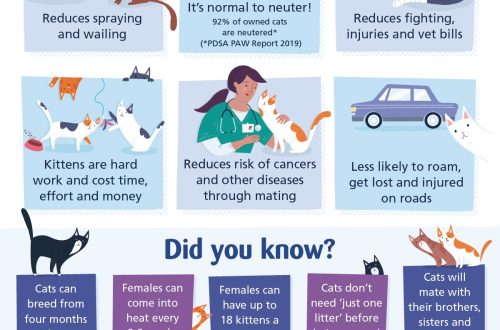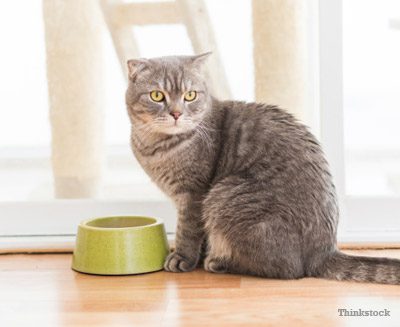
Предности стерилизације мачака и мачака
Neutering a cat provides a number of benefits to both you and your pet. What are they? For you, this means that the cat will mark less and you will have less anxiety.
Neutering (or castration) is the process by which an animal is deprived of the ability to reproduce. Spaying cats is commonly referred to as castration. In relation to cats, it is customary to use the term “neutering” (although any of these processes can be called sterilization).
It’s hard to accept, but at the moment there aren’t enough homes for cats in need of a home. According to the American Society for the Prevention of Cruelty to Animals (ASPCA), 3,2 million cats end up in shelters every year. By spaying your cat, you are helping to prevent cat populations from growing too much. More importantly, however, spaying will help your cat live a longer and healthier life.
Садржај
Benefits of spaying and castration
Превенција болести
Spaying a cat before her first estrous cycle (estrus or ability to reproduce) significantly reduces her risk of developing cervical cancer and completely eliminates the risk of ovarian cancer. Because spaying reduces levels of cancer-promoting hormones, spaying also reduces the chance of breast cancer in cats.
It should also be remembered that there are other diseases that occur as a result of the natural behavior of a cat during the mating season. Feline leukemia and AIDS are transmitted through bites that cats can receive from infected partners, according to the VCA Hospitals (these diseases are different from AIDS and leukemia in humans and cannot be transmitted from cats to humans). By reducing your cat’s desire to fight for mates and territory, you also reduce the chance of them contracting these incurable diseases from other cats.
Reduced number of fights
Unneutered males are hormone-driven looking for mating partners and defending their territory from intruders. Therefore, living two unneutered cats in the same house can lead to fights, especially if there is a cat nearby during estrus. By spaying cats, you remove their aggressive instincts.

Reduced risk of getting lost
When a cat goes into heat, hormones and instincts push her to look for a partner. And if you have one, she will try to escape every time you open the door. Remember that males are also driven by hormones and mating instinct, so they will do their best to run away from home. When outdoors, both males and females are at risk of injury when they run across a road or highway in search of a mate. By spaying a cat, you suppress her roaming instinct and ensure a safe and comfortable stay around you.
A cleaner home
Cats mark their territory by spraying urine onto vertical surfaces. While the pungent smell of an unneutered cat’s urine alerts other males to the presence of another male marking the area, it lets females know that the cat is waiting to mate with her. So an uncastrated cat breeds a lot of dirt in the house. Sterilization reduces or eliminates his desire to mark corners, and if he continues to mark, the smell will be much less pungent.
During estrus, a cat also develops an odorous discharge that alerts males to the presence of a fertile female. By spaying a cat, you eliminate this problem as well.
Када то учинити
Your veterinarian will recommend the optimal age for this operation on your cat. Most veterinarians recommend neutering when a cat reaches puberty.
Шта да очекујете
The surgical sterilization procedure is performed in a veterinary clinic under general anesthesia. The veterinarian will explain the procedure to you and give you specific instructions for pre- and post-care of the animal. You will need to not feed or water the cat the night before the operation and take it to the veterinary clinic by a certain hour.
During the operation, the cat will be given an anesthetic so that she does not feel and is not aware of what is happening. In males, a small incision is made on the testicles through which the testicles are removed. The incision is closed with either dissolvable sutures or surgical glue. Cats usually return home with you the same evening, with no complications or special problems.
In cats, a larger incision is made to remove the ovaries and/or uterus. Because this is a fairly large incision in the abdomen, the cat is usually left overnight for observation. In most cases, she can go home the very next day.
Some veterinarians put a cone or Elizabethan collar on the cat after surgery, which is a paper or plastic sleeve that fits like a funnel around the neck. It prevents the animal from scratching, biting, or licking the surgical wound while it heals. Many cats require special medications or postoperative care. If your veterinarian gives you an appointment after surgery, bring your cat in on time.
Will my cat change?
Probably not. After sterilization, the cat will quickly return to its former playful behavior. After the necessary rest, your cat will return to being herself – the one you know and love well.
Feeding a cat after spaying
After spaying, some cats begin to put on weight quickly, so it’s important that your pet gets plenty of exercise and proper nutrition. Hill’s Science Plan for Neutered Cats provides the right combination of nutrients and calories your cat needs to maintain optimal weight.
Spaying a cat still has more advantages than disadvantages. Sure, it can be scary for you to take your pet for surgery, but remember the animal’s health benefits, and if you haven’t already, talk to your veterinarian about spaying your cat.
Gene Gruner
Gene Gruner is an author, blogger, and freelance writer based in Virginia. She takes care of six rescued cats and a rescued dog named Shadow on her 17-acre farm in Virginia.





